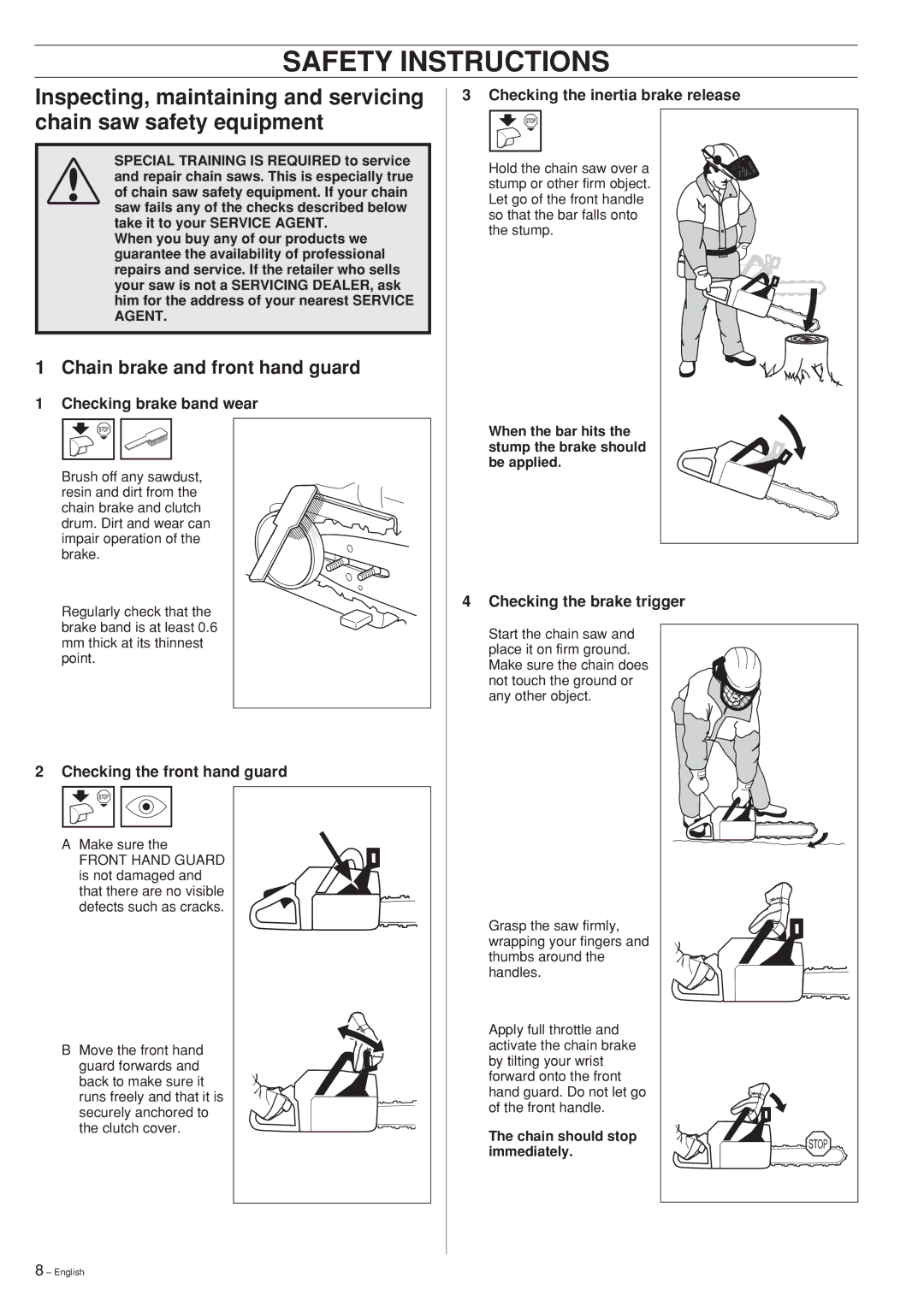
SAFETY INSTRUCTIONS
Inspecting, maintaining and servicing chain saw safety equipment
SPECIAL TRAINING IS REQUIRED to service and repair chain saws. This is especially true of chain saw safety equipment. If your chain saw fails any of the checks described below take it to your SERVICE AGENT.
When you buy any of our products we guarantee the availability of professional repairs and service. If the retailer who sells your saw is not a SERVICING DEALER, ask him for the address of your nearest SERVICE AGENT.
1 Chain brake and front hand guard
1Checking brake band wear
Brush off any sawdust, resin and dirt from the
chain brake and clutch drum. Dirt and wear can impair operation of the brake.
Regularly check that the brake band is at least 0.6
mmthick at its thinnest point.
2 Checking the front hand guard
AMake sure the
FRONT HAND GUARD is not damaged and
that there are no visible defects such as cracks.
B Move the front hand guard forwards and back to make sure it runs freely and that it is securely anchored to the clutch cover.
3 Checking the inertia brake release
Hold the chain saw over a stump or other firm object. Let go of the front handle so that the bar falls onto the stump.
When the bar hits the stump the brake should be applied.
4Checking the brake trigger
Start the chain saw and place it on firm ground.
Make sure the chain does not touch the ground or any other object.
Grasp the saw firmly, wrapping your fingers and thumbs around the handles.
Apply full throttle and activate the chain brake by tilting your wrist forward onto the front hand guard. Do not let go of the front handle.
The chain should stop immediately.
8 – English
